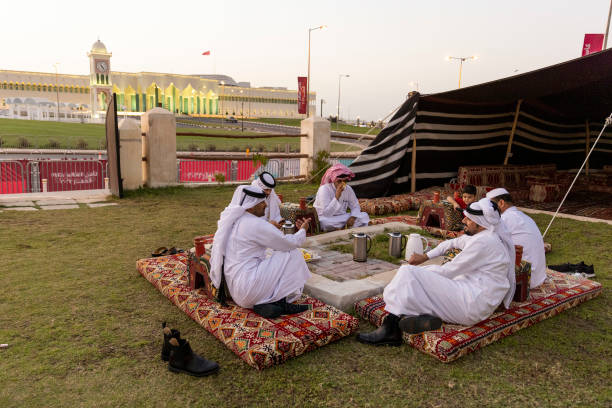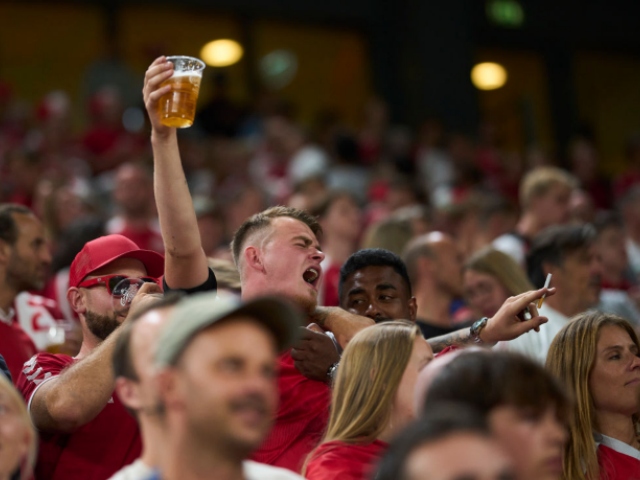The Qatar Royal Family has now requested for the organizers of the upcoming FIFA World Cup to hide the beer tents erected around the stadium.
Though FIFA worked out a deal with Qatar that alcohol would be available for sale at the major world sporting event, government officials have asked organizers to “respect” local customs.

Men during a break near Doha Corniche ahead of the FIFA World Cup Qatar 2022 on November 15, 2022, in Doha, Qatar. (Maja Hitij – FIFA/FIFA via Getty Images)
“Though alcohol is legal in Qatar, it is generally only available for sale at designated hotel bars – many of which are frequented by overseas visitors,” noted the Daily Mail. “Concerns over offending the population of the deeply conservative and religious Muslim nation are believed to be behind the last-minute decision.”
Organizers have since been moving beer concession stands, which often have the labels of sponsors like Budweiser, to different locations around the stadium. Budweiser, which reportedly paid $75 million to sponsor the World Cup, told the New York Times that it recently became aware of the situation and that it was “working with FIFA to relocate the concession outlets to locations as directed.” However, per the New York Times, the change could severely alter Budweiser’s longstanding relationship with FIFA:
Moves that limit Budweiser’s branding or affect its ability to sell its products could complicate FIFA’s relationship with a powerful partner, not to mention the contractual relationship between the brewer, the governing body and Qatari World Cup organizers.
Budweiser pays roughly $75 million to associate itself with the World Cup every four years. But a World Cup in Qatar has produced unusual obstacles, and led to ongoing tensions between the company and FIFA over issues ranging from agreeing on sales points in Qatar to negotiating how to get supplies into the country.
Controversy also erupted over Qatar hosting the World Cup due to the country’s strict laws against homosexuality. Earlier this year, FIFA even went as far as to celebrate Pride Month while saying on its website that the World Cup Qatar 2022 will be a “celebration of unity and diversity” as people, regardless of “race, ethnicity, religion, age, disability, sex characteristics, sexual orientation, gender identity and expression” join for a time of friendly competition. FIFA then claimed it took measures to ensure this time of diversity and unity would be properly implemented:
• Training all staff involved in the competition, including public and private security forces, on how to accomplish their tasks in a non-discriminatory manner.
• Insisting hotels and other contractors involved in welcoming LGBTQIA+ fans to Qatar to do so in a manner that respects the rights and privacy of everyone.
• Implementing systems to identify and address instances of homo-, bi- and transphobia and other discriminatory practices inside and outside the stadiums.
• Operating a grievance mechanism through which concerns can be reported to FIFA and addressed by the competent teams.
FIFA did not address the fact that Qatar has strict laws against homosexuality, which could include prison time and potential death for those found guilty.
“Same-sex sexual activity is prohibited under the Penal Code 2004, which criminalises acts of ‘sodomy’ and ‘sexual intercourse’ between people of the same sex. These provisions carry a maximum penalty of seven years’ imprisonment. Both men and women are criminalised under this law,” noted Human Dignity Trust.
According to the Daily Mail, the United States men’s soccer team on Monday announced they had “redesigned their crest to incorporate the rainbow flag, in a bid to show solidarity with the LGBTQ+ community.” Singer Rod Stewart also told the Sunday Times he declined an offer of $1 million to perform in Qatar due to the laws.
